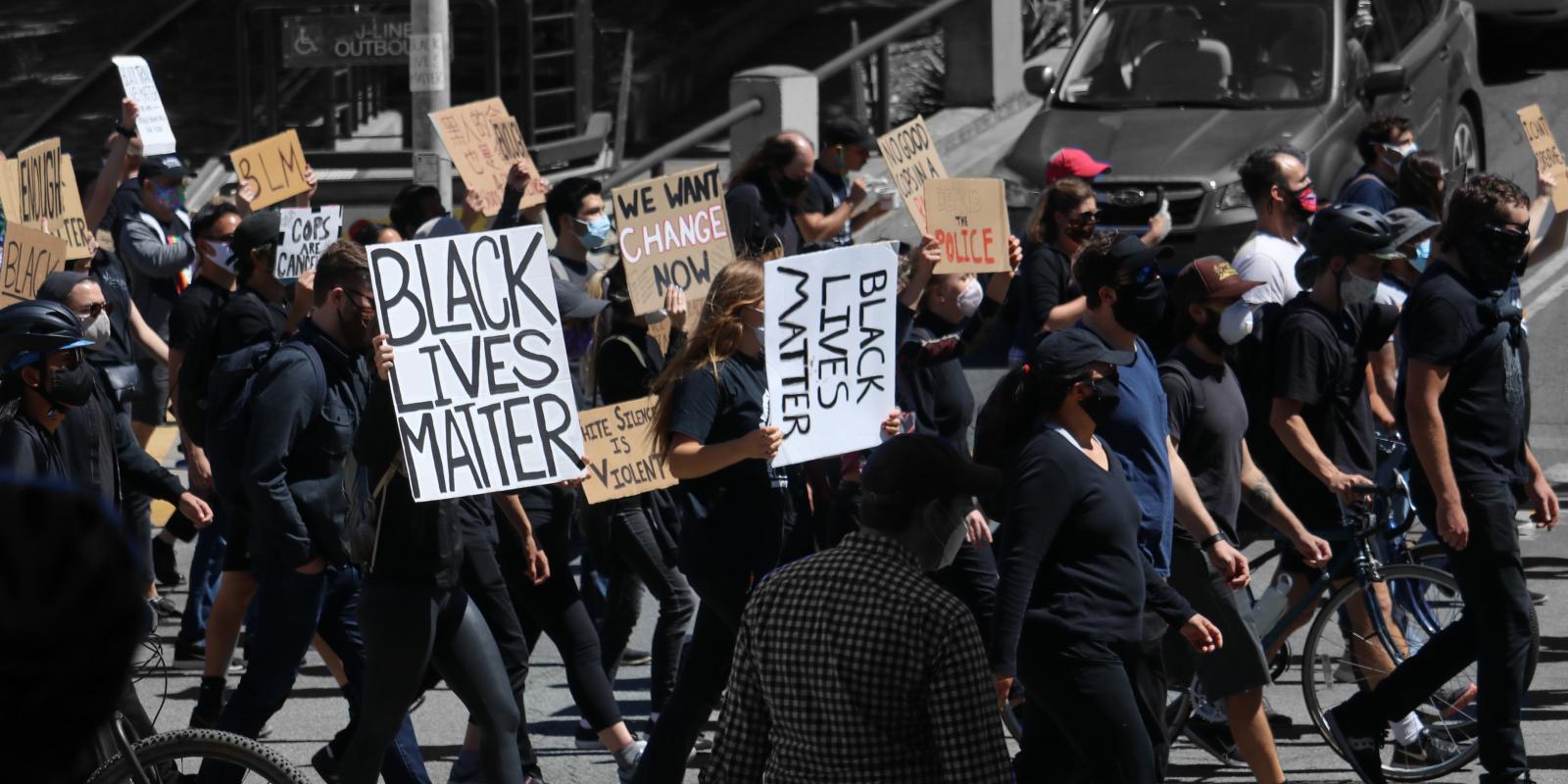
'The World Will Never be the Same:' Faculty Share Insights on U.S. Protests, Black Lives Matter
“What we are seeing right now in the United States and around the world is a reckoning that has been coming for a long time,” said Mark Deets, assistant professor of African history. “It comes after a series of police murders and abusive conduct, but the murder of George Floyd was the proverbial straw that broke the camel's back.”
Over the past couple of weeks, waves of protests erupted across the United States following the death of George Floyd, an unarmed African American man, who died as a police officer kneeled on his neck for nearly nine minutes during an arrest for an allegedly counterfeit bill. The incident sparked outrage in the country, as tens of thousands of people took to the streets as part of the Black Lives Matter movement, demanding an end to police violence toward African Americans. Starting in Minneapolis, Minnesota, where Floyd died, the demonstrations spread to different parts of the world.
“These murders are not new. What’s new is the technology available for documenting them on video,” said Deets. “Violence against black bodies has been prevalent in the West since the advent of the Atlantic slave trade in 1525.”
The police officer who knelt on Floyd’s neck as he repeatedly pleaded, “I can’t breathe,” has since been charged with second-degree murder and could face up to 40 years in prison, while the other officers at the scene were charged with aiding and abetting the killing.
But for demonstrators in the United States, that’s not enough.
“Across time, across space and across groups, policing has a tortured history of being enforcers to various forms of domination,” said Doris Jones, senior instructor II in the Department of Rhetoric and Composition who also teaches courses on African-American literature and politics. “Protesters have taken to the streets to demand police reform and accountability, but to also engage the prospect for a new vision of a relationship between state authorities and the health of communities.”
Jones added that change must begin by examining the long history of policing, racial hierarchy and racial injustice that is deeply ingrained in the United States.
Balthazar Beckett, assistant professor of English and comparative literature, said that police violence is just one part of a system that “dishes out various forms of punishment, financial quarantine, environmental pollution, denial of basic services and militarized policing to African Americans.”
“African Americans have been three times as likely to die of COVID-19 as white Americans and are arrested, prosecuted, fined and incarcerated at vastly disproportionate rates compared to white counterparts,” Beckett said.
Also citing some of the disparities, Deets noted, “This racist legacy took a long time to build — denying housing, education, health care and a decent wage to black people — and it may take longer than we think to bring it down.”
So what does a solution look like?
“There's no proposal that everyone can agree on, especially now that the BLM movement has been leveraged by other groups with different motives,” Deets said. “Some in America want to defund the police, and some don't. Some ask what that even means. People know that they want change, but there is less agreement on what kind of change and how far people are willing to go to get it. But one thing is for sure: The world will never be the same.”
Calls to ‘defund’ the police have been widely prevalent across the country and through various social media platforms, with people encouraging others to call their state representatives and send emails demanding change. To defund doesn’t mean to completely abolish, but to redistribute funding.
“Concrete demands include the immediate transfer of public funds from police departments to more meaningful ways of engaging communities, a process that is already happening in various cities,” Beckett said.
Some of these more meaningful proposals that Beckett mentioned include investing in public health, community leaders, mental health resources and social workers, and also improving the quality of life, education, medical services and food access.
“The health of a community depends on everything from the public goods and social services as well as safety,” Jones said. “Only then can the country make critical steps towards redressing the legacy of racial injustice, even after the nation celebrated the election and re-election of its first African-American president."
